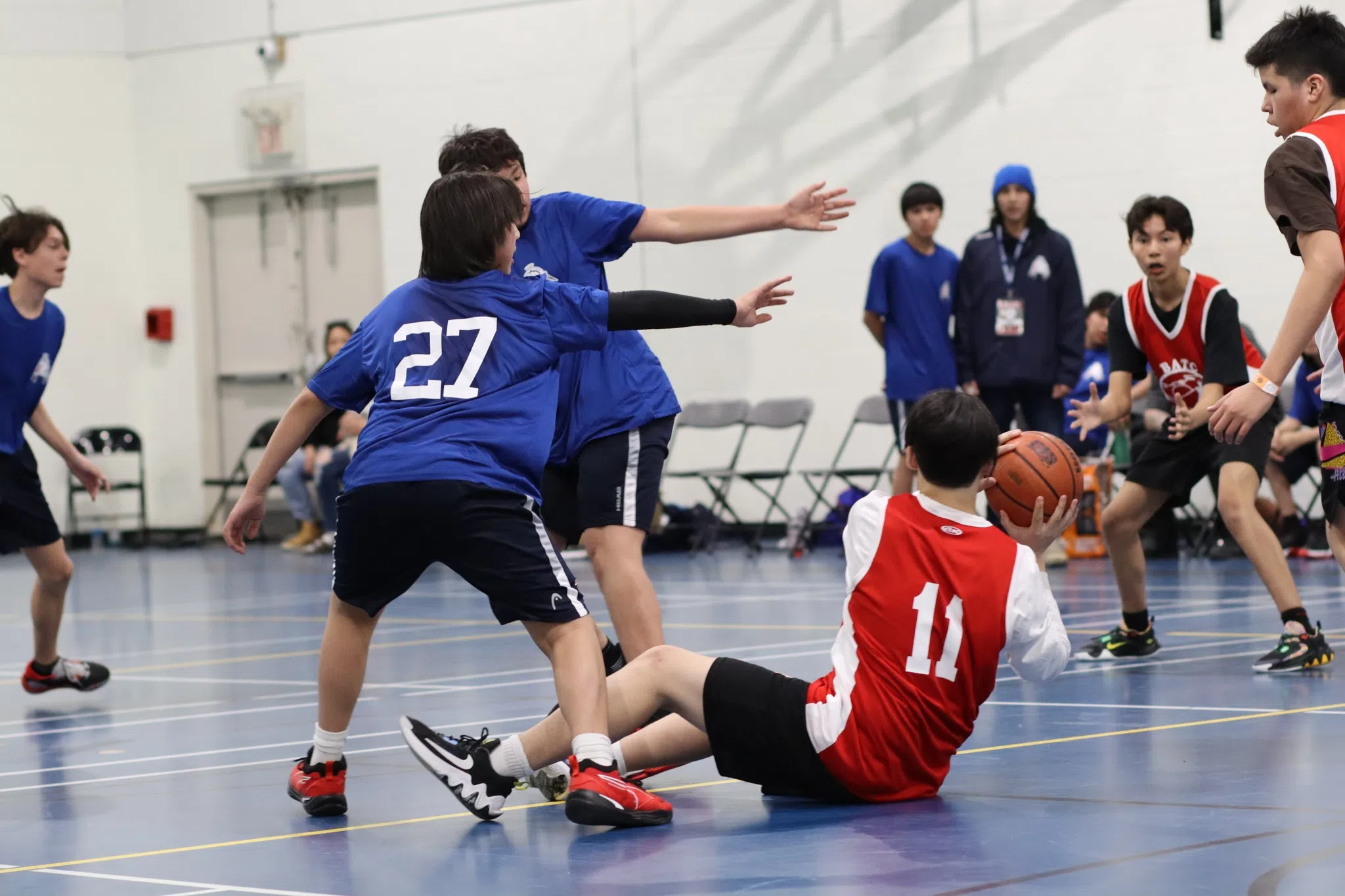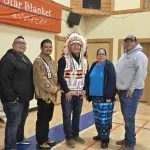
Tony Cote Winter Games 2023
On the surface, the Tony Cote First Nations Winter Games may seem, simply, to be an opportunity for young Indigenous athletes to compete against their peers from across the province.
But the games have deep, innumerable impacts on these young people’s lives, extending far beyond sport. And the impacts of those games have perhaps never been more important, considering the First Nation serving as host of the games.
“Even though James Smith Cree Nation was the focal point of a very difficult news item, I think these games are a call to all of us to ensure our young people start off and live their lives in a health, productive way,” said Lyle Daniels, Games Manager of the 2023 Tony Cote Winter Games.
“Every year, these games give great pride in who we are as Indigenous people. Which is important no matter where you’re from.”
Despite a 47 year history, the Winter Games had been on hiatus for the last five years. After the tragedy that occurred at James Smith Cree Nation last fall, the return of the games couldn’t have come at a better time, and serves as a ‘bright spot’, said Deborah McLean, Councillor at James Smith Cree Nation.

Photos by Maurice Longman
“We wanted to find a way to give our people back a sense of belonging.
To get back out there and help with their recovery. It was really needed during this time,” said McLean.
James Smith Cree Nation was just one of the many First Nations to participate in the games – according to organizers, all 74 First Nations were represented – but James Smith was the only First Nation who had the honour of hosting the event.
This meant they had a short two months to plan and coordinate the event, as well as assemble volunteers and Elders from their First Nation to work at the event.
“We wanted to nurture the spirit of everyone involved. Because we knew they were all going through a hard time. So this was a chance to get them out of the community and do something uplifting,” said McLean.
The young athletes from James Smith Cree Nation competed with Prince Albert Grand Council – one of 13 teams representing all 74 First Nations in Saskatchewan. A total of 3,400 athletes, coaches, and managers participated in the games, which were held from April 7 to 13 in Saskatoon and Martensville. The teams competed in volleyball, table tennis, badminton, hockey, basketball, and curling.
Based on an overall point system, Battleford Agency Tribal Chiefs placed first, followed by Meadow Lake Tribal Council in second and Saskatoon Tribal Council third.
Regardless of the outcome of the games, they brought something invaluable to the First Nations and young people who competed, particularly those from James Smith.
“I think it gave us some resilience. It showed us that this tragedy is not going to be our entire identity,” said McLean.
“It gave the young people a sense of pride in themselves and their community. And it rejuvenated those passions to play, to compete, and to connect with others.”
In addition to athletic events, the Winter Games included a cultural component, with a parade of nations, motivational speakers, and a demonstration of the traditional sport of ‘handgames’.

Photos by Maurice Longman
Handgames, which dates back to 1885, consist of two teams of five players that sit across from each other in a line. While traditional drumming and music is played, one team works to hide objects in their hands, passing them between team members while the opposing team must guess where the objects are hidden.
Daniels, the Games Manager, said it was important to infuse the winter games with culture.
“It gave our young people the opportunity to start looking at a balanced life. To look not only at sport or career, but a more holistic side of who we are as people. Our spiritual side and believing in a higher power,” he said.
Leaders from across the province, including STC Chief Mark Arcand, and FSIN Vice-Chief Aly Bear, have championed the games and the impact they’ve had when they were competitors.
“We’re getting young people ready to be adults,” said Daniels.
“Those building blocks that sport gives them, learning to win and lose, to compete and share with those around you, it builds them in a way that will help them live a healthy, positive life.”

